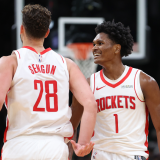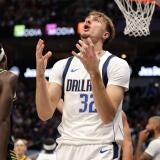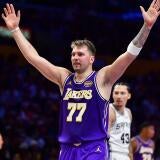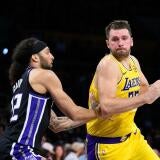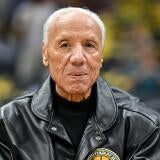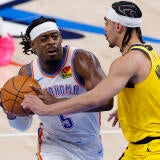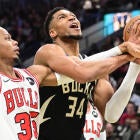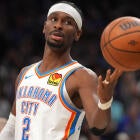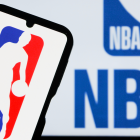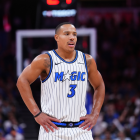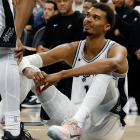
If Nico Harrison is really on the hot seat, that may be the best news Mavericks fans have gotten all season
The Mavericks may be close to ending an all-time bad run of basketball malpractice
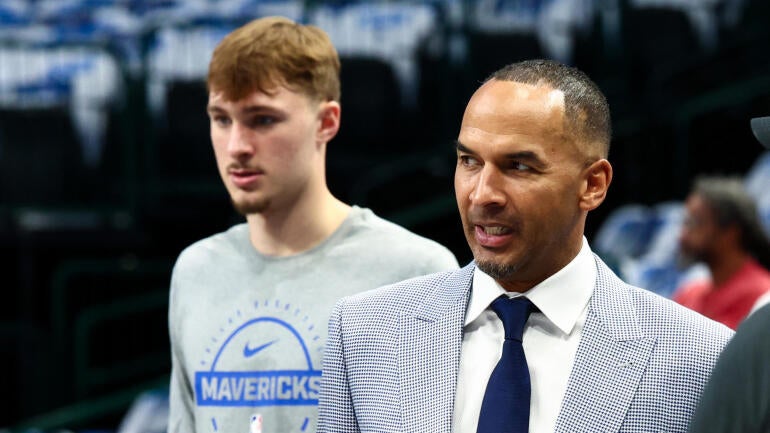
Oh, the Dallas Mavericks may fire general manager Nico Harrison? Better late than never, I suppose.
They should have fired Harrison the moment he suggested trading Luka Dončić. They should have fired him when he traded Quentin Grimes for Caleb Martin. They should've fired him after his disastrous and bizarre meeting with the press last April. They should have fired him the moment they won the Cooper Flagg lottery and were granted a "get out of jail free" card from the basketball gods. They should have fired him in the preseason, when the hilariously unbalanced roster he constructed forced Flagg -- a 6-foot-9 18-year-old who plays forward -- to move to point guard.
The best time to fire Nico Harrison would have been any of those moments. The next best time to fire Nico Harrison would be right now. And that is finally, seemingly, a consideration in Dallas.
"The rising and virtually ceaseless negativity that surrounds the franchise is indeed wearing on and troubling ownership," insider Marc Stein wrote Sunday. While Stein notes that team governor Patrick Dumont's preference would be to give Harrison more time, "contemplating whether an in-season change is the wisest course for the Mavericks to try to forge ahead post-Dončić has become unavoidable at the highest levels of the organization."
No general manager in basketball has had a worse start to the 2025-26 season than Harrison. Dončić is playing the best basketball of his life and is firmly in the early-season MVP mix for the 7-3 Los Angeles Lakers. Grimes is averaging a career-high 17.2 points per game for the Philadelphia 76ers, who are thriving in the Eastern Conference. Speaking of teams thriving in the Eastern Conference, the point guard he lost for nothing when he first took the Dallas job, Jalen Brunson, just led the New York Knicks to Eastern Conference finals a year ago. And these are just the players no longer on his team.
Things get far bleaker when you look at the start the Mavericks have had.
- They currently rank dead last in the NBA in offense.
- They're shooting 30.3% on 3-pointers (for comparison, bricklayer Russell Westbrook has shot 30.7% for his career).
- Anthony Davis, the player Harrison essentially bet his career on, is already injured (who saw that coming?) and posting his lowest scoring average since his second NBA season.
- There's still no telling when injured point guard Kyrie Irving will return.
- The Cooper Flagg at point guard experiment flopped so spectacularly that D'Angelo Russell was in the starting lineup by Dallas' eighth game of the season.
- Erstwhile Klay Thompson is washed, dried, folded and placed neatly in the linen closest.
These are all valid reasons to fire your general manager. The "fire Nico" chants that can still be heard at Mavericks games aren't helping, either. But the miserable vibes of these opening weeks aren't what seemingly concern the Mavericks. According to Stein, the idea that could lead to Harrison's ouster is "based on the premise that the front office executive who conceived and pushed for the widely criticized Dončić deal can no longer be the one trying to pilot the organization past it." This, in a nutshell, is why the Mavericks need to act.
As hyperbolic as this seems, the next several months are going to be some of the most important of the entire Flagg era in Dallas. Despite Harrison's atrocious management, there is still a brief and critical window available for the Mavericks this season to set Flagg up for sustained success. If they miss the window that's open to them here and now, there's no telling when or if another is going to present itself. So, what makes these next few months so vital? Primarily, two things:
- The Mavericks do not control their own first-round picks between 2027 and 2030. They effectively cannot tank, meaning they cannot add cheap upside around Flagg. In that window, they'll either have to trade even more future draft capital or primarily focus on adding proven players at market value. However, they do still control their 2026 first-round pick. That makes the 2026 NBA Draft their best and perhaps last chance to give Flagg a young, affordable running mate.
- Anthony Davis is still reasonably valuable. He's not playing up to his typical standard and he's already suffered a (hopefully) minor injury, but he'd still generate meaningful interest on the trade market. That could change fairly quickly. His value drops if his slow start persists. His value drops if he suffers a more serious injury, which his history suggests he's at risk for. Those are hypotheticals. What isn't is that Davis becomes extension-eligible this offseason. Davis is already 32. He is enough of a long-term risk given his injuries and playing style that the Lakers reportedly did not plan to offer him this extension before trading him. Should he sign that extension, his trade value likely evaporates.
The Mavericks are already 3-7 against a fairly weak schedule in a loaded Western Conference. We don't know when or if they'll get Irving, their only high-end shot-creator, back on the court. Davis is constantly dealing with some nagging injury or another. Most of the team is already banged up. The plan for the remainder of this season should be obvious: take advantage of this final opportunity to tank for Flagg's future, get a high enough pick to land his long-term co-star, and trade Davis and other veterans to try to recoup some of the picks Harrison frittered away. Most general managers viewing the situation rationally would reach that conclusion.
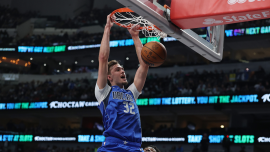
But a hot seat burns away rationality. When a general manager is losing support from ownership, his priority more often than not shifts from his team's long-term interests to his own short-term job preservation. If the Mavericks come to the conclusion that some version of the "tank and rebuild" plan is needed, why would they allow the person who necessitated it to lead it? Harrison's path to keeping this job for the long haul isn't to act in the team's best long-term interests. It's to prove that the moves that he's already made were the correct ones. That means, at best, staying the course, and more likely doubling down.
It almost felt as if the seeds for that were planted when Mavericks coach Jason Kidd recently said that Irving's return would hopefully be "in the year '25, not '26." A rebuilding team wouldn't bring a 33-year-old back from a torn ACL in 10 months. It would sit him out for the season and resolve to have him back at 100% next year. Irving's health is out of the team's control, but further roster moves aren't. If 3-7 becomes 5-13, does Harrison try to trade for a win-now guard? Harrison has said that the future, to him, is "three or four years." What does he care about, say, the Mavericks' 2032 first-round pick if that's the window he's operating under? If he still has the job by next summer, he almost has to try to extend Davis whether it's in the team's best interests or not if only to justify the controversial trade that he made.
Given how poorly basically everything in Dallas has gone since the Dončić trade, it's fair to suggest Harrison's personal, short-term interests do not align with the team's long-term interests. That was frankly true the moment Harrison considered trading Dončić, as no general manager is more valuable than a 25-year-old MVP candidate, but it's even truer today, as the situation has so glaringly deteriorated.
It's somewhat astounding that there's even some hope left to be found here. The Mavericks had a 1.8% chance of landing Flagg. He is in Dallas purely through chance, not deft management on Harrison's part. Nothing the Mavericks have actually chosen to do over the past 10 months suggests that this team deserves the chance to salvage the most inexplicable trade in NBA history. But they have it if they're prepared to seize it, and seizing it effectively means admitting that the Dončić trade was a mistake. Nobody is less likely to do that than the person who made it.
Again, there is no shortage of reasonable justifications for firing Nico Harrison. Winning back fan sympathies? Entirely valid. Improving the vibes around Flagg's rookie season and preventing any developmental scars from setting in? That matters too. The unbridled success of basically every player that's left Dallas lately? A nice cherry on top.
But nothing matters more than getting these next few months right. In a year, Cooper Flagg could be playing with another top prospect on a team with a restocked cupboard of assets and a generally bright future, or he could be wasting his sophomore season as a pawn in Harrison's ill-fated experiments in defense-first roster-building. After perhaps the worst year in franchise history, the Mavericks may finally be recognizing that the first path is more appealing than the second.


